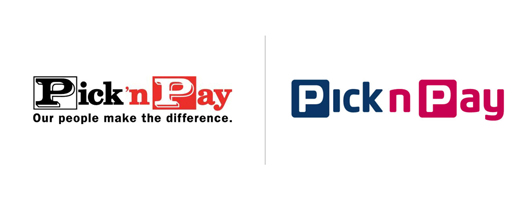media update’s Taylor Goodman explores the difference between brand and branding, and the role these concepts have to play in your corporate image and growing your business.
As public perception plays a key role in the success of your brand, branding is critical. Not only does it influence
how consumers see your brand but it can also help to expand your consumer base and increase brand awareness, goals every business wants to achieve.
Now without further ado, let's get into the difference between brand and branding:
What is a brand?
Think of your favorite brands: Apple, Coca-Cola or McDonald’s, for example. When these corporations come to mind, you likely associate it with certain products or services based on experiences you’ve had with them.
You may think the company determines the brand, but this is largely
in the consumer’s hands.
This is because a brand is based on what your customers think about your business, based on their interactions with it. This perception is subjective and
emotive, meaning that opinions can fluctuate.
Consumers also influence brands because they can either build or break your brand based on personal experiences, making it
essential that you create a positive and consistent customer experience.
What is branding?
You may think ‘How different could branding
really be from the term brand?’ Well, it is not only an
entirely different concept, but it does have its own way of affecting business. Additionally, it is reported that
77% of marketers say that branding is essential to future growth.
Jay Baer, author of The Now Revolution,
defines the concept as: “Branding is the art of aligning what you
want people to think about your company with what people actually
do think about your company.”
In essence, branding is defining
who your business is,
what your brand’s story is and
how you can tell that story in a way that resonates with your audience.
In a more literal sense,
the function of branding is to:
- position your company or product in the marketplace
- devising a brand strategy
- creating a verbal, corporate and product identity
- streamlining brand messaging, and
- setting brand standards
Being conscious of and consistent with your branding helps to ensure that your brand’s story aligns with consumer perceptions.
Once branding is
solidified, businesses do not often rebrand; but, when they do, it’s a big deal. It is likely that
in a business’s life-span of 50 years, it is likely to rebrand 2 or 3 times. This process occurs when a brand becomes
outdated.
However, if your business is regularly releasing new products or branching out into new ventures, it is likely to work with branding on a more regular basis.
In the South African context, one of the most noticeable rebrands has to be from Pick n Pay. The supermarket chain conducted a major brand overhaul in
2009:

Not only did it completely update its aesthetics, but it also
had a shift in its vision to be ‘more conscious of the consumer’. The brand did this by putting a greater focus on improving its shopping experience and introducing its customer magazine,
Fresh Living.
Pick n Pay revamping its branding refreshed its overall brand image, thereby prolonging its relevance and allowing it to remain competitive in the industry.
The importance of branding
Branding is an important marketing tool because it helps to define your brand and it influences consumer perception. The way your business conducts branding directly correlates with how consumers connect and interact with it.
If you want to ensure positive customer experience and cultivate a loyal consumer base, it is essential to actively work on your branding in order to stand out from competitors
What is your favorite brand? Why? Let us know in the comments section below.
You’ve reached the end of what we could only assume to be an amazing article! Instead of having to search for our stories in the future, why not get them delivered straight to your inbox? Sign up for our newsletter here.
Strong employer branding is a key attribute of a successful brand, but it’s often neglected in favour of consumer-facing branding. Read The importance of employer branding to learn more.
*Image courtesy of Vecteezy